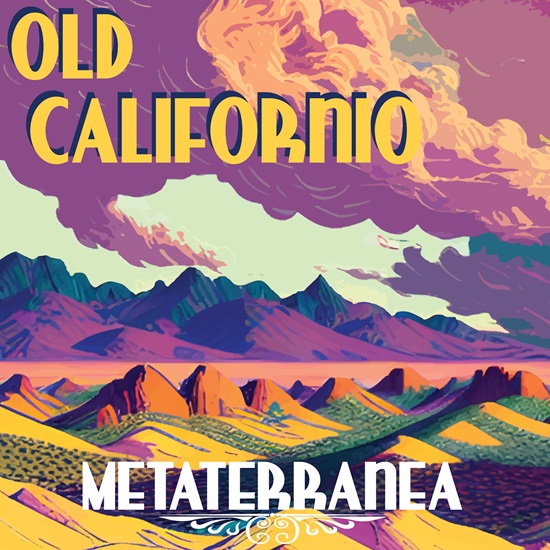
The longer you listen to ‘Metaterranea’ the more you realise what a challenge it is to pin down Old Californio to any given style. There are elements of country, elements of straight-ahead rock and even a bit of jazz thrown in. What you can be certain of is that the songs are well-crafted and the playing is superb throughout. The choice of songs to top and tail the album shines a light on the band’s influences and the musical journey taken by the ten songs.
The album opens with a tribute to El Camino Real (definitely not the King’s Road in Chelsea) and the people who gather in the bars in the towns along the old highway. It’s a song that harks back to the analogue and organic era of the seventies (there’s even a lyrical reference to “The lotus eaters and the luddites”) and great bar bands with musicians playing guitars, keys, drums and bass as opposed to sequencers, loop stations and laptops. Like the rest of the album it’s more about the feel than the technical aspects.
The album takes us on a journey, through all of its twists and turns to the final song ‘Just Like a Cloud’ which is a lyrical and musical exploration of dissolution. Lyrically it’s all about the thought of returning to the ecosphere after death, while musically it starts as a solid rock arrangement with guitar and electric piano before an extended guitar solo morphs away from rock territory into atonal freeform jazz to represent the random scattering of fragmented remains.
The name Old Californio is entirely accurate. Songwriter Rich Dembowski is an old-school melancholy West Coast troubadour with dreamlike songscapes and lyrical references to evanescence, mythology (Sisyphus) and even Holy Communion. The musical settings also reflect the late sixties/early seventies vibe with hints of The Band and the rockier Neil Young material. It’s loose but with a nice swing. If there’s one song that encapsulates the outsider status of Rich Dembowski, it’s ‘Weeds/Wildflowers’, which sees the outsider as the weed. As gardeners will tell you most weeds are just plants that grow where you don’t want them.
‘Metaterranea’ is very much a back-to-basics album where the focus is on creating settings that emphasise the message of the original and unusual songs without any unnecessary studio trickery – just great arrangements and great playing. I’ll take that any day of the week.
Here’s the album’s opener, ‘Old Kings Road’:
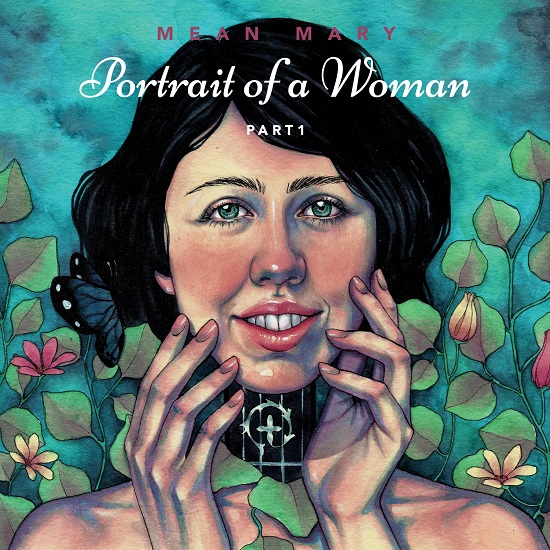
Mean Mary, or Mary James if you like, is a whole bunch of interesting characters. There’s Mary James the multi-instrumentalist (with banjo at the forefront), Mary James the singer-songwriter and Mary James the author, just for a start. She’s also the sister of gifted twelve-string guitar player Frank James and daughter of author and songwriter Jean James. All of these facets of Mary James are pulled together in ‘Portrait of a Woman (Part 1)’, which should be followed by Part 2 in September 2023. The first part highlights Mary’s many talents, featuring banjo and violin instrumentals (‘Merry Eyes and ‘Butterfly Sky’), songs that tell stories, songs of life as a touring musician and a few songs that hint at some kind of supernatural menace. It’s a pretty comprehensive package.
The album opens with a powerful display of Mary’s strengths; it’s a full band piece featuring Mary’s vocals, guitar and banjo, Frank’s twelve-string and vocals and it’s a co-write with Mary’s mum. ‘Cranberry Gown’ is a story song set in a traditional folk styling, telling a tale of one important symbol that can make a world of difference to a life of drudgery. The song is circular; the gown is lost and then found again, and self-esteem is restored. The album’s second song ‘Bridge Out’ is a humorous take on life on the road, bringing out the interaction that characterises Mary and Frank’s live performances, with Frank cast as the gloomy, unrecognised sideman. It’s a bit of fun underpinned by some serious observations about the pressures of life as a touring musician.
The touring musician theme reappears on ‘Big Tour Bus’ , featured on Mary’s 2020 album, ‘Alone’, which takes a more serious look at the pressures on travelling musicians from a female point of view. If you’ve heard solo female musicians talk or sing about life on the road, you’ll recognise the story Mary tells. It’s not just difficult, it can be dangerous out there.
Of the remaining songs, there are a few personal standouts. ‘Bette Come Back’ is a real story-teller’s song, building up a brooding intensity about the whereabouts of Bette, who has disappeared during a storm. The turnaround is that Bette is a cat frightened by the thunder who has hidden under the bed. The traditional, folky, ‘Old Banjo’ is on the same theme as ‘Cranberry Gown’; everything will be all right as long as the banjo is there. ‘Only Time to Pray’ conveys a sense of menace from the bowed upright bass notes of the intro, while the album’s closing song ‘Clouds Roll By’ displays Mary’s vocal range in a love and escape song that gently evokes The Band.
This album gives a good idea of the breadth of Mary’s talents, from the breath-taking banjo playing, through the vocal versatility to the quality of the songs she creates on her own and with her mother Jean. Give it a listen and try to catch her live if you can.
‘Portrait of A Woman (Part 1)’ is out now on Woodrock Records (WDRK-4303).
Here’s the video for ‘Cranberry Gown’:
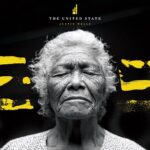 “The United State” is more than an album, it’s a journey and it’s a journey that we all take, from the cradle to the grave or, more accurately, the womb to the tomb. That’s the way Justin Wells conceived the project; he came up with concept then wrote the songs to fit in with the storyboarded sequence. It turned his normal way of writing upside down, imposing a completely different discipline to the creative process. The recording process was a similar trial, using a host of guest musicians to create some fascinating sonic textures and styles ranging across atmospheric instrumental, a cappella, country, country rock, slow blues and Southern funk to bring the story to life (and death).
“The United State” is more than an album, it’s a journey and it’s a journey that we all take, from the cradle to the grave or, more accurately, the womb to the tomb. That’s the way Justin Wells conceived the project; he came up with concept then wrote the songs to fit in with the storyboarded sequence. It turned his normal way of writing upside down, imposing a completely different discipline to the creative process. The recording process was a similar trial, using a host of guest musicians to create some fascinating sonic textures and styles ranging across atmospheric instrumental, a cappella, country, country rock, slow blues and Southern funk to bring the story to life (and death).
The album opens in the womb with a short, atmospheric instrumental featuring slide and ambient guitar sounds and ends with the ethereal a cappella of “Farewell, Mr Hooper” representing death and between the two, there are ten strong and varied songs moving the narrative along. The second single from the album, “No Time For a Broken Heart” is out now; it’s a nod in the direction of The Band and the message is pretty simple – life ain’t easy, but we have to take what it throws at us and get on with it. The electric piano and resonator move the song just a little out of the country mainstream into more eclectic territory.
Other standouts for me are “Never Better”, a four-to-the-floor stomp with a Southern boogie feel given a twist with a touch of electric piano again and the slow blues “After the Fall” with a full band sound, including three guitars and some powerful solos and twin guitar breaks hinting at the stylings of Keith Richards and Mick Taylor/Ronnie Wood. The theme of the song is classic obsession with the ‘fallen woman’ and the inability to walk away. It’s the centrepiece of the album, showcasing Justin Wells’ rasping blues vocal and some classic blues soloing. It’s followed by the Lowell George-tinged “It’ll All Work Out”, which is dominated by keys and some lovely slide playing. The chorus sounds positive but the message is that people will tell you it’ll all work out, but it ain’t necessarily so.
“The United State” is packed with songs that work perfectly well in isolation but, in sequence, tell a universal story; we all know the ending, but the interest is in how you get there and this is a very interesting album indeed.
“The United State” is released on Friday August 28th on SINGULAR RECORDINGS (SNG202001JW).
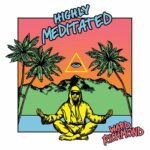 Ward Richmond’s a great example of the way the music sector (it’s difficult to call it a business or an industry) works these days. After touring in various bands with varying degrees of success between 1998 and 2006, he left live music behind in favour of a more traditional career path. In times past, that would have meant goodbye to music, with its cycle of album releases and tours, but times have changed. It’s more difficult to make a decent living from music now, but it’s much easier to release an album when you have it ready to go. That’s the route Ward Richmond’s gone down; he released “The Warden” in 2016 and four years later he’s releasing “Highly Meditated”.
Ward Richmond’s a great example of the way the music sector (it’s difficult to call it a business or an industry) works these days. After touring in various bands with varying degrees of success between 1998 and 2006, he left live music behind in favour of a more traditional career path. In times past, that would have meant goodbye to music, with its cycle of album releases and tours, but times have changed. It’s more difficult to make a decent living from music now, but it’s much easier to release an album when you have it ready to go. That’s the route Ward Richmond’s gone down; he released “The Warden” in 2016 and four years later he’s releasing “Highly Meditated”.
The album’s a fascinating mix of humour, nostalgia, anxieties and gradual renunciation of vices (all the usual ones) and introduction of virtues (meditation and yoga). It’s a midlife album, but it’s far from a crisis; Ward is weighing up the pros and cons of the old and the new existence through the lens of parenthood. However happy the memories of the past are, it’s a country we no longer live in, and that’s message of “Highly Meditated”.
The musical stylings are mainly country-inflected but with a few notable exceptions, such as the final song “These Days” which opens with a drum pattern that wouldn’t have sounded out of place on an Adam and the Ants single in the eighties before morphing into a rockabilly workout punctuated by a spoken middle eight about the virtues of hot yoga. “I Need A Water Fountain” references another facet of the eighties (and late seventies), FM radio drivetime with maybe a hint of Journey in there, whereas “Hey Levi” looks back a decade further to the sound of The Band at their peak.
Ward Richmond looks forward and backward with a wry sense of humour that’s obvious in the lyrics and sometimes in the musical stylings as well. There’s plenty of self-deprecation in the backward and forward views that, along with humour, somehow underlines the seriousness of the overall message; at some point, most of us actually grow up.
“Highly Meditated” is out now as a download.
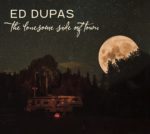 It’s fair to say I’m not a prolific reviewer; it’s all about the process. The first listen to an album decides whether it moves me enough to review it, then it gets another five or six listens before I make some notes, track by track. Then I look at the press release and lyric sheets, sleeve notes and anything else that came with the songs. It’s just the way I do it and it throws up some interesting little insights. And there are some artists that you look forward to reviewing because they always make you think very carefully about their work; Ed Dupas is one of those artists. He writes a lot of songs about relationships, happy or sad, but you know that each album will have one song that digs deep and pulls out a reaction to the world that surrounds us. We’ll get to that in a while.
It’s fair to say I’m not a prolific reviewer; it’s all about the process. The first listen to an album decides whether it moves me enough to review it, then it gets another five or six listens before I make some notes, track by track. Then I look at the press release and lyric sheets, sleeve notes and anything else that came with the songs. It’s just the way I do it and it throws up some interesting little insights. And there are some artists that you look forward to reviewing because they always make you think very carefully about their work; Ed Dupas is one of those artists. He writes a lot of songs about relationships, happy or sad, but you know that each album will have one song that digs deep and pulls out a reaction to the world that surrounds us. We’ll get to that in a while.
Most of the songs on “The Lonesome Side of Town” fall into genres that can be labelled as country, rock or some combination of the two. Country’s the dominant force on this album with arrangements featuring pedal steel, lap steel, banjo and resonator, but the addition of a Hammond B3 adds another dimension, taking the sound into The Band territory. And let’s not forget the Merseybeat feel of “Love Me Right”, with its chiming guitars and sus4 chords.
Of the eleven songs, ten are deeply personal, dealing with aspects of a relationship breakdown and one, “State of the Nation”, placed in the dead centre of the album, is the zeitgeist song. Ed Dupas doesn’t do a lot of these, but when he does, they hit, and they hit hard. “State of the Nation” is an out-and-out rocker about the divide between the people who work and the people who benefit from that work. It’s no frills rock ’n’ roll fired out in less than three minutes and it brings to mind Bob Seger’s 1978 song “Feels Like a Number” – well, Ed does live in Ann Arbor, Michigan. As an example of the level of detail in the production, rather than crashing the over-driven guitar in at the beginning of the second verse, it’s faded in just before the beginning of the verse so that it reaches the right level just as the verse begins; just a little touch, but it works perfectly.
But that’s not to belittle the rest of the album. The title song sets the mood for the album as it tells the familiar story of a relationship with a performer, while “It All Sounds like Leaving” could only ever be a country song, particularly with the line ‘Let’s get on with the grieving, cos it all sounds like leaving’. Ed admits to agonising over the track order and losing one song that didn’t fit, and that confirms the message that it more than just a bunch of songs – it’s an album and there are subtle links between the songs. There are three references to ‘within’ or ‘between the lines’ and “On my Way” refers back to “It All Sounds like Leaving”. The more you dig, the more you find.
“The Lonesome Side of Town” is a beautifully-crafted set of songs coming out of a difficult situation. There are songs of heartache, a song of anger and some songs of redemption and moving forward. They are all songs of passion.
“The Lonesome Side of Town” is released in the UK on Friday October 25th on Road Trip Songs.
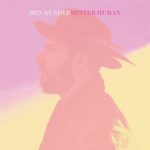 So, where would this little Ben Kunder gem sit in the racks of your local music store? It’s almost impossible to say but I guess it’s going to land in that current catch-all, the Americana section because it features that well-known roots instrument, the synthesiser. The lasting impression of the album is of positivity; the two words of the title cropping up across various songs. It certainly ends on a positive note with a celebration of the birth of a baby in “Night Sky”. Lyrically, the album falls squarely into the introspective singer-songwriter category, but the stylings vary dramatically across the nine songs; let me explain.
So, where would this little Ben Kunder gem sit in the racks of your local music store? It’s almost impossible to say but I guess it’s going to land in that current catch-all, the Americana section because it features that well-known roots instrument, the synthesiser. The lasting impression of the album is of positivity; the two words of the title cropping up across various songs. It certainly ends on a positive note with a celebration of the birth of a baby in “Night Sky”. Lyrically, the album falls squarely into the introspective singer-songwriter category, but the stylings vary dramatically across the nine songs; let me explain.
While “Fight for Time” “Better Days” and “Hard Line” fall in to fairly standard arrangements for this genre (okay “Hard Line” features a string section towards the end), “Jessi” has the feel of a eighties drive-time classic driven with some insanely catchy synth hooks thrown in for good measure. In common with the rest of the album, there are hints of Jackson Browne in the writing and the vocal intonation. “Lay Down”, however, is pure E Street Band with perhaps a few hints of Bob Seger in there as well. It’s over five minutes long and the combination of piano and organ from the beginning set the tone; maybe there are hints of The Band in there as well. As the song builds, no opportunity’s missed to gild this particular lily, with extra percussion from congas and tambourine, a falsetto vocal and a huge slide solo. The frantic drumming towards the end sums up the production; if it’s worth doing, it’s worth overdoing. “Come On”, which follows immediately, is a welcome chance to catch your breath before the album closes with the lovely “Night Sky”.
“Better Human” is an immensely uplifting album, focussing on the ways we can make things better for ourselves and each other. The fact that the sentiment is helped along by interesting and innovative arrangements lifts it well above the ordinary run of singer-songwriter albums.
“Better Human” is released on Comino Music (BKBH002) on Friday September 28th.
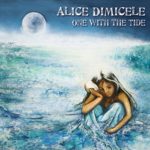 Alice DiMicele’s a highly-principled songwriter. She creates songs about the things that matter to her, whether it’s the environment, land rights of indigenous peoples or being in a relationship with an alcoholic. To these powerful themes she adds a wide range of musical stylings to create nine songs (nine song albums, is that a thing now?) that demonstrate a wide range of influences while retaining an organic, rootsy feel. If that wasn’t enough, she has a tremendous voice with a huge range and the ability to work across different styles. All of this and a John Lennon cover to close out the album. Sounds good to me.
Alice DiMicele’s a highly-principled songwriter. She creates songs about the things that matter to her, whether it’s the environment, land rights of indigenous peoples or being in a relationship with an alcoholic. To these powerful themes she adds a wide range of musical stylings to create nine songs (nine song albums, is that a thing now?) that demonstrate a wide range of influences while retaining an organic, rootsy feel. If that wasn’t enough, she has a tremendous voice with a huge range and the ability to work across different styles. All of this and a John Lennon cover to close out the album. Sounds good to me.
As much as I love the elemental, environmental themes of the album, the song that I want to hear again and again is “Lonely Alone”, a poignant ballad that tells the story of life with an alcoholic. It all fits together perfectly, from Alice’s soulful delivery (reminiscent of Etta James’ “I’d Rather Go Blind”) to the Steve Cropper-like crystal-clear guitar solo and even the prominent accordion; there’s not a note out of place. It’s followed immediately by the uplifting “Waiting” with its South African rhythms and a bit of steel pan to add a Caribbean carnival vibe to create a feeling of joy that throws the stark environmental messages into sharp contrast.
Apart from these two songs, the overall sound of the album has hints of The Band (maybe it’s the Hammond B3 and slide guitar) and some interesting string arrangements (on “The Other Side” and “Seeds”) and a lovely stripped-back version of the final song, the album’s only cover. It’s fair to say that “Imagine” isn’t my favourite song, but Alice strips away the overblown elements of the original and, with some delicate finger-picked guitar, harmony vocal and cello; can you believe it, “Imagine” with a cello solo?. It’s only a delicate touch, but the call and response of ‘brotherhood of man’ and ‘sisterhood of woman’ transforms the song completely.
“One with the Tide” is an album full of seemingly effortless performances, thought-provoking lyrics, startling contrasts and superb vocals. Favourite song? Has to be “Lonely Alone” with the perfect soul combination of a sparse arrangement, melancholy theme and Alice’s soaring vocal.
“One with the Tide” is released on Friday January 19 on Alice Otter Music (AO114).
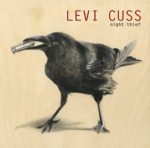 Levi Cuss has quite a back story. He’s lived an eventful life, done things that he regrets and done some time as a consequence, but ultimately it’s all grist to the mill. He’s living a more conventional life now (if writing and performing songs can be called conventional), using some of the experiences from earlier days as material for his songs and using music as a means of redemption. And that’s all very well, but is the music any good? Well, it is, as it happens; the songs are strong and the musical settings are always interesting. Producer Steve Dawson has brought in some vintage (seventies mainly) instruments and soundscapes to bring a sense of historical perspective to the narratives.
Levi Cuss has quite a back story. He’s lived an eventful life, done things that he regrets and done some time as a consequence, but ultimately it’s all grist to the mill. He’s living a more conventional life now (if writing and performing songs can be called conventional), using some of the experiences from earlier days as material for his songs and using music as a means of redemption. And that’s all very well, but is the music any good? Well, it is, as it happens; the songs are strong and the musical settings are always interesting. Producer Steve Dawson has brought in some vintage (seventies mainly) instruments and soundscapes to bring a sense of historical perspective to the narratives.
The songs are across a range of styles, but the musical settings are firmly rooted in the early seventies; the lively JJ Cale cover “Bring it Back”, a story about bringing contraband across the Mexican border which probably won’t be released as a single in the current climate, is part “Spirit in the Sky” and part Canned Heat’s “Let’s Work Together”. It’s raucous and great fun.
Without sounding derivative, the album is infused with seventies references. The opening song “Red City River” hints at Dylan and The Band, “Cut my Teeth” is country-rock and “Pills” is pedal steel-laced country about the twisted logic of assuming that pills are better than alcohol because ‘Pretty few songwriting people they take pills’. There are a few songwriting twists, “Saturday Night” is a laid-back, rather than lively take on the party night and “Grandma” is a tribute that celebrates a real life without sanitising it.
And that leaves a couple very interesting songs indeed. “Tecumseh” is a love song with a twist; where a man builds a relationship with the sister he murdered, and the closing song “Utumbo” which recreates a spacey retro synth mix of Pink Floyd and The Animals. It’s quite a way to close out an album that moves easily between retro styles with songs that have a strong autobiographical feel.
“Night Thief” is released on Friday March 10 and Levi Cuss will be touring the UK later in the year.
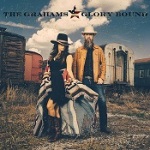 Maybe this is a reappraisal that’s long overdue. We live in a society that’s so dominated by the car and its implications of individualism that we now have a long tradition of road and car songs and there’s even a drive-time genre. The railroads in the USA, which featured so heavily in popular culture during the nineteenth century have now been largely replaced by the highways. That is, until Americana duo The Grahams (Alyssa and Doug) decided to ride the rails and re-evaluate the role played by the network in stitching together the tapestry of American music. The time they spent on this project led not only to their second album, the marvellously eclectic “Glory Bound”, but also a documentary film, “Rattle the Hocks”, which is featured at the UK 2015 Raindance film festival.
Maybe this is a reappraisal that’s long overdue. We live in a society that’s so dominated by the car and its implications of individualism that we now have a long tradition of road and car songs and there’s even a drive-time genre. The railroads in the USA, which featured so heavily in popular culture during the nineteenth century have now been largely replaced by the highways. That is, until Americana duo The Grahams (Alyssa and Doug) decided to ride the rails and re-evaluate the role played by the network in stitching together the tapestry of American music. The time they spent on this project led not only to their second album, the marvellously eclectic “Glory Bound”, but also a documentary film, “Rattle the Hocks”, which is featured at the UK 2015 Raindance film festival.
The album opens with the title track, easing in with acoustic guitar before a ridiculously catchy guitar hook comes in to drive the song forward (along with a huge backbeat in the chorus) with a train-evoking rhythm, which is then followed by the equally raucous Southern boogie shuffle of “Gambling Girl”. Both songs feature Alyssa’s rock voice, but as the album progresses it becomes clear that she can work in a whole range of vocal styles, from the raw emotion in the chorus of “Lay Me Down” to the high, clear flute-like tones of “The Spinner”; it’s quite a set of vocal performances. There’s a wide variety of Americana styles from the folk song feel of the elegaic “Blow Wind Blow” to the bluegrass-styled “Kansas City”, which is short, sharp and sweet but packs everything in including sparkling guitar and fiddle solos and the simple spiritual sound of “Mama”.
The big backbeat reasserts itself on “Griggstown” and the closing song “The Promised Land”, driving the first song on to its destination and the second on a seemingly futile quest while “Biscuits” has a honky-tonk feel and a nice line in double entendre lyrics; all good clean fun. Which leaves “The Wild One”; it’s placed right in the centre of the album and this has to be the single, lead track or whatever radio’s calling it this week. From the moment the organ kicks in you know this is pure musical gold (with a nod in the direction of The Band) as the arrangement complements the tragic but ultimately uplifting story which unfolds. Everything about the structure of the song helps to emphasise the message, including a chorus which is absolutely irresistible; there’s even a “Running on Empty” reference in the first line, unless it’s a huge coincidence. There’s nothing about this song that you would ever want to change.
“Glory Bound” is a great album and it’s made for people who actually want to listen to albums. It has a theme, it starts and finishes on railroad songs, visits places with railroad connections and places an absolute gem of a song right in the centre of the collection. This is one train you really don’t want to miss.
Out on Friday October 2 on 12South Records (GRAM003).
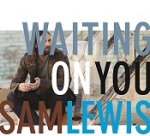 It’s not particularly unusual to find an artist whose work is difficult to pin down to one genre. It’s pretty common to hear of artists mixing blues and country or blues and soul, but Sam Lewis goes the whole way, weaving elements of blues, soul and country into the texture of his songs on his second album, “Waiting on You”. The album was recorded at Nashville’s Southern Ground with a cast of players which included Will Kimbrough (the go-to guitar-slinger for Riot Squad favourite Dean Owens), Darrell Scott, Mickey Raphael, Gabe Dixon and The McCrary Sisters and the combination of a live recording philosophy and absolute top quality players creates a flawless and seemingly effortless backdrop for the songs and Sam’s smooth, soulful voice.
It’s not particularly unusual to find an artist whose work is difficult to pin down to one genre. It’s pretty common to hear of artists mixing blues and country or blues and soul, but Sam Lewis goes the whole way, weaving elements of blues, soul and country into the texture of his songs on his second album, “Waiting on You”. The album was recorded at Nashville’s Southern Ground with a cast of players which included Will Kimbrough (the go-to guitar-slinger for Riot Squad favourite Dean Owens), Darrell Scott, Mickey Raphael, Gabe Dixon and The McCrary Sisters and the combination of a live recording philosophy and absolute top quality players creates a flawless and seemingly effortless backdrop for the songs and Sam’s smooth, soulful voice.
There’s nothing remotely flashy about this album but equally, there isn’t a note or lyric out of place in this atmospheric evocation of a life lived at a less frantic, more relaxed pace. The opening song, “3/4 Time”, sums this up; it’s not about a ¾ time signature, it’s about taking life at a canter rather than a gallop and appreciating your surroundings. From here on in, the album moves through a variety of styles, from the early Van Morrison feel of “Love Me Again” and the slow blues of “She’s A Friend” through the blues shuffle of “Things Will Never Be the Same” and the country blues of “Reinventing the Blues” to quiet contemplation of the finger-picked “Never Again”. It’s all gorgeously listenable and it’ll leave you with a warm glow of satisfaction.
Towards the end of the title song, Sam pushes towards the top end of his range and sounds a lot like Al Green; it’s just one of many examples of a superb voice finding the last ounce of emotion in the song and sharing it with us. Three songs towards the end of the album are perfect examples of Sam’s laconic songwriting and singing style. “Texas” is the story of a man going back to Texas after a relationship fails, although the twist is that the failure happened because, in his mind, he never actually left Texas, while “Virginia Avenue” is a musical snapshot of life in Anywheresville, USA. The closing song, “I’m Coming Home” is as close to anthemic as we get, with an uplifting message and a sound that’s reminiscent of The Band, and that always has to be a good thing.
“Waiting on You” is an album that’s packed full of musical quality; Sam Lewis has an astonishingly good voice and he’s surrounded himself by quality musicians who provide a classy backdrop for his gently evocative songs. It’s a cracking album.
“Waiting on You” is out now on Brash Music (BRH0093-2).


